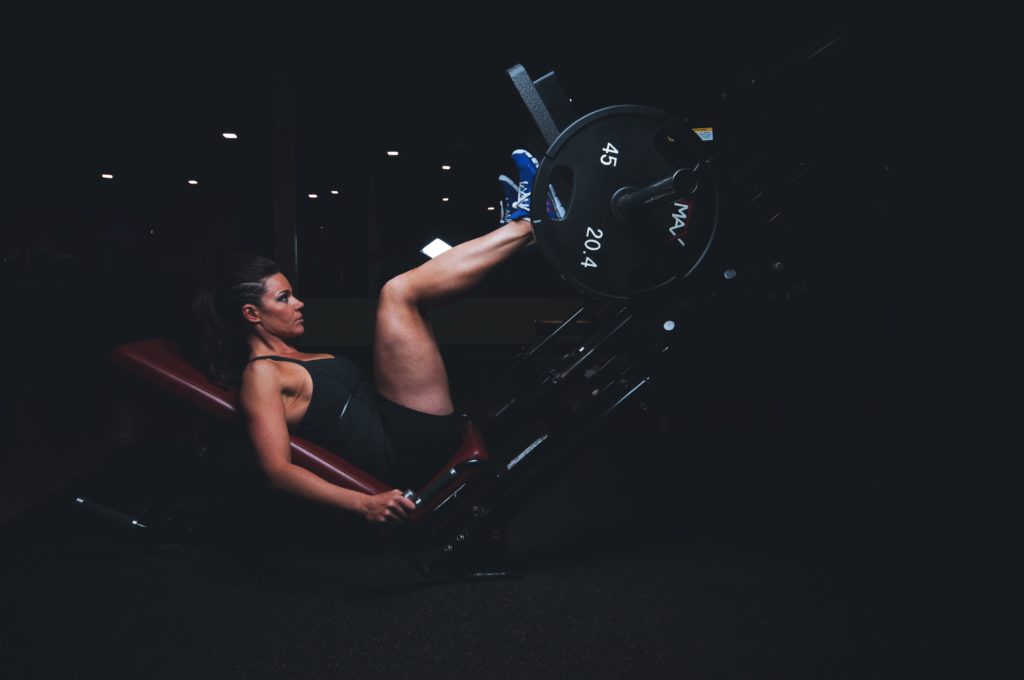1. Use Magnesium, Not Melatonin
For a supplement option, utilize magnesium to promote healthier sleep. Magnesium can act as an inducer of GABA, the major inhibitory neurotransmitter of the body. GABA helps the body slow down internal processes, especially in the nervous system. By decreasing facilitation of nerves, we help the nerves and the muscles they supply recover, which is extremely important for successful repeat athletic performances. Magnesium comes in many different forms or ‘chelates’, and research suggests that magnesium threonate is the best inducer of GABA in the body, and will ultimately be the best choice for athletic recovery during sleep. Other supplements supported by the research include chamomile, kava kava, and Valerian root.
However, be careful about the popular sleep supplement, melatonin. While very effective for some people, it’s important to remember that melatonin is a hormone that is naturally produced by the body. This means that if you are taking the hormone externally, you run the risk of turning off your body’s natural production of the hormone, so reserve this supplement as a last ditch effort.
2. Avoid Late Night Workouts and Meals
Your late night workout or large meal close to bedtime may be disrupting your sleep. Working out late at night can increase levels of our ‘awake’ hormone, cortisol, and decrease the body’s natural release of our ‘sleep’ hormone, melatonin. Additionally, we induce a “fight or flight” sympathetic state when working out, which will make falling asleep more difficult. Shoot to finish your workout before 7pm to ensure that you give your body adequate time to calm down and relax before you go to sleep. If your schedule absolutely requires that you workout late at night, make sure to utilize effective down regulation strategies after your workout to turn off your sympathetic system and activate your “rest and digest” parasympathetic system. Excellent down regulation strategies include post workout foam rolling, static stretching, and deep breathing exercises.

Choosing to eat dinner late at night may also disrupt your sleep. Embedded in the lining of the digestive tract is the enteric nervous system, a complex web of neurons that has been called the ‘second brain.’ The enteric nervous system is important for the muscular contractions that move food through the digestive tract, the secretion of digestive enzymes, and communication with the brain via the vagus nerve. The importance of the connection between the gut and the brain via the vagus nerve cannot be understated, especially when one considers that 90% of the nerve communication moves from the gut to the brain. In regards to healthy sleep, it makes sense that an active digestive system will send stimulatory signals from the digestive tract to the brain, keeping us awake at night. Keeping this in mind, I like to finish eating at least 90 minutes before bedtime.
3. Foam Rolling for the Nervous System
Many professional athletes utilize massage therapy as a post-performance or before bed treatment. Massage has been shown to decrease cortisol levels (which are naturally high after exercise), while increasing serotonin and oxytocin, two hormones associated with relaxation and our parasympathetic ‘rest and digest’ state. While most of us do not have access to a nightly massage, a 10-minute foam rolling session before bed can have a similar down-regulating effect on the nervous system and promote healthy sleep. Focus on the calves, quadriceps, hamstrings, and glutes, as these areas may be prone to tightness after a full day of exercise or after a long day of sitting at work.
4. Consistency is Key

As with any health and fitness related goal you are looking to achieve in life, consistency and adherence to a predetermined plan is essential. Make it a point to wake up, as well as go to sleep, within the same 60 to 90 minute time frame every morning and evening, even on the weekends. Do your best to schedule social activities during the day and evening so that you don’t feel like you missed out on anything by not staying up late on the weekends. Sporting events, outdoor activities like skiing and hiking, or a trip to the botanical gardens are excellent ways to have fun on the weekends without sacrificing your sleep schedule.
Want to learn more? Check out Sleep Smarter by Shawn Stevenson. Many of the ideas mentioned above are draw on methods from this book.
Post Written by Dr. Riley Kulm, DC. Check out Dr. Riley Kulm’s bio here.


